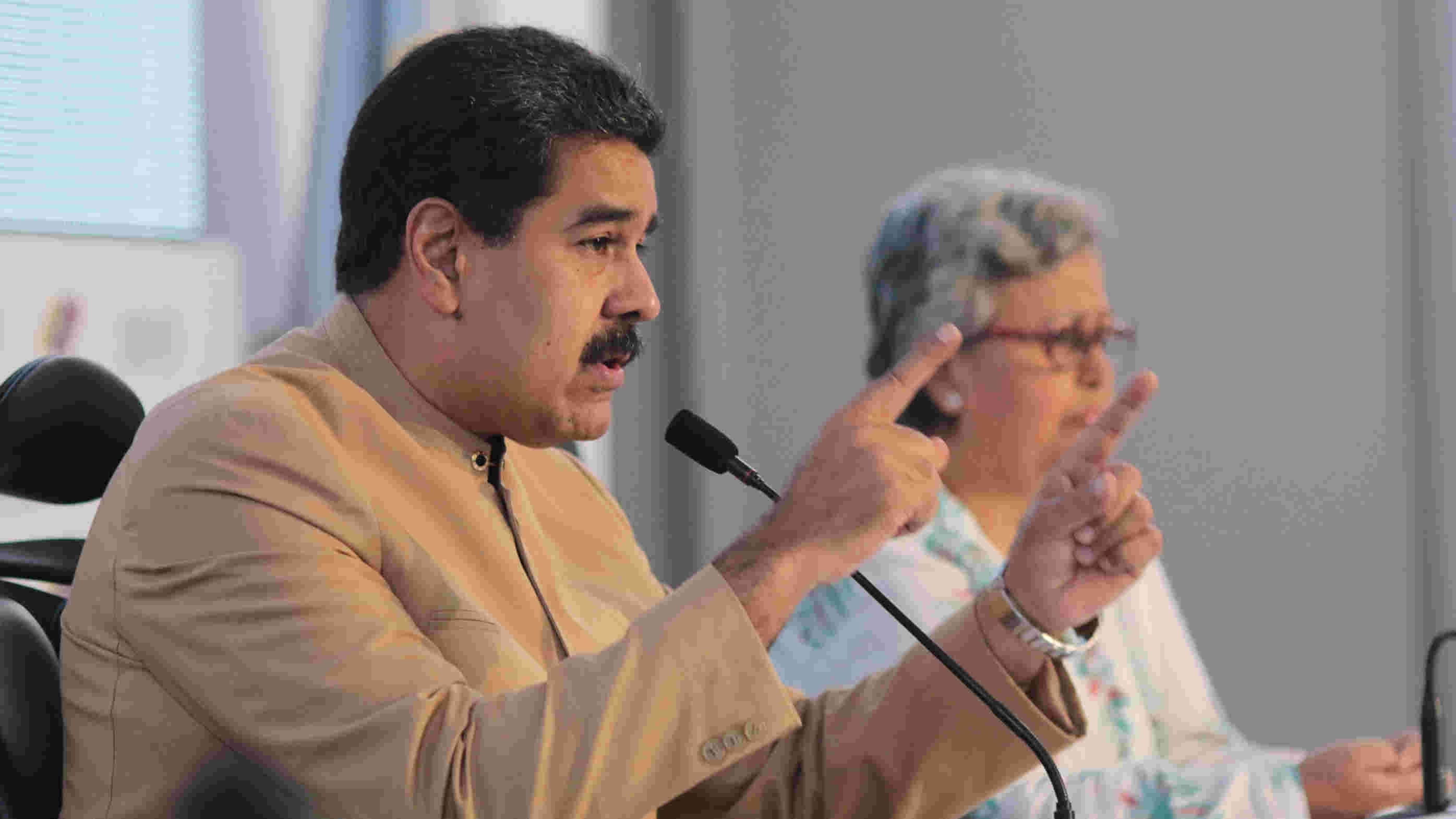
Politics
10:09, 01-Aug-2017
US imposes sanctions on Venezuelan president Maduro

The administration under US President Donald Trump slapped financial sanctions on Venezuelan President Nicolas Maduro and branded him a "dictator" on Monday, after a weekend election that gave the South American country's ruling party virtually unlimited powers.
The sanctions freeze any assets Maduro may have in US jurisdictions and bar Americans from doing business with him. The sanctions were announced in a statement by Treasury Secretary Steven Mnuchin.
"Yesterday's illegitimate elections confirm that Maduro is a dictator who disregards the will of the Venezuelan people," Mnuchin said. He warned of further US penalties against Maduro allies.

US Treasury Secretary Steve Mnuchin speaks at the press briefing at the White House in Washington, DC, July 31, 2017. /AFP Photo
US Treasury Secretary Steve Mnuchin speaks at the press briefing at the White House in Washington, DC, July 31, 2017. /AFP Photo
So far, Washington has not imposed restrictions on the country's huge oil exports to the US.
The monetary impact of the sanctions wasn't immediately clear as Maduro's holdings in US jurisdictions, if he has any, weren't publicized. The US has had sanctions against Syria's President Bashar al-Assad since 2011. Other heads of state currently subject to US sanctions include Zimbabwe's Robert Mugabe and North Korea's Kim Jong Un.
Maduro rebuffed US sanctions that targeted him personally, saying he was "proud" to be singled out by the measure.
"The threats and sanctions do not intimidate me. I have nothing to fear," Maduro said, adding the sanctions serve to highlight the "impotence, desperation and hatred" felt in Washington.

Venezuelan President Nicolas Maduro talks during a meeting in Caracas, July 31, 2017. /AFP Photo
Venezuelan President Nicolas Maduro talks during a meeting in Caracas, July 31, 2017. /AFP Photo
Earlier on July 26, the US Treasury had imposed sanctions on 13 current and former Venezuelan officials in a bid to deter the poll on July 26. Maduro called the sanctions "illegal, insolent and unprecedented."
World reactions
The election on Sunday was marred by violence, with widespread protests, killing at least 10 people. The assembly will draw up a new constitution that many believe is aimed only at securing Maduro's increasingly authoritarian rule. On Monday, Venezuela's government said the election had given it a popular mandate to dramatically recast the political system, despite widespread claims of low voter turnout.

Anti-government activists clash with security forces during a protest against the elections for a Constituent Assembly in Caracas, July 30, 2017. /AFP Photo
Anti-government activists clash with security forces during a protest against the elections for a Constituent Assembly in Caracas, July 30, 2017. /AFP Photo
The EU expressed "preoccupation for the fate of democracy in Venezuela," and said it doubted it could accept the results.
US State Department spokeswoman Heather Nauert said the new assembly "is designed to replace the legitimately elected National Assembly and undermine the Venezuelan people's right to self-determination."
However, Russia, Cuba, Nicaragua and Bolivia have stood by Maduro.
Protests continue
Mnuchin also urged those elected to the 545-member Constituent Assembly not to take their seats. Last week, he warned that those elected could be subject to US sanctions for "undermining democratic processes and institutions in Venezuela."

Venezuelans protest against President Nicolas Maduro, in Caracas, July 31, 2017. /AFP Photo
Venezuelans protest against President Nicolas Maduro, in Caracas, July 31, 2017. /AFP Photo
A march scheduled for later on Monday to honor those killed on polling day appears to have been postponed until Wednesday, the day that the constituent assembly is due to meet.
Related stories:
11160km

SITEMAP
Copyright © 2018 CGTN. Beijing ICP prepared NO.16065310-3
Copyright © 2018 CGTN. Beijing ICP prepared NO.16065310-3